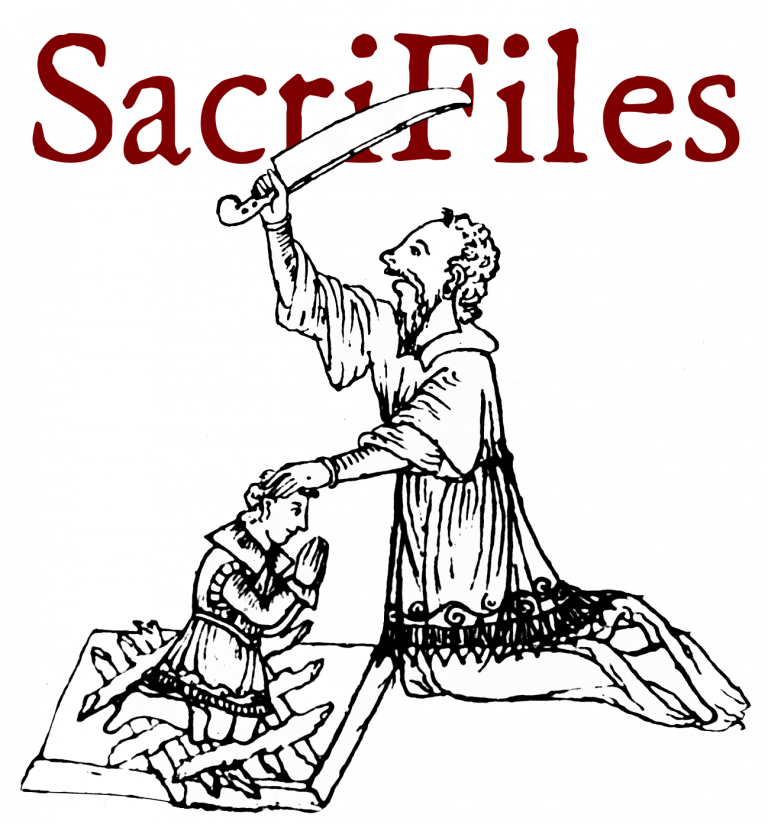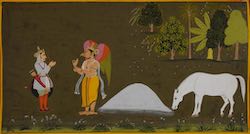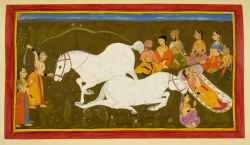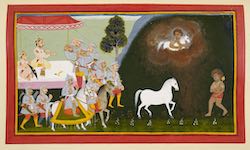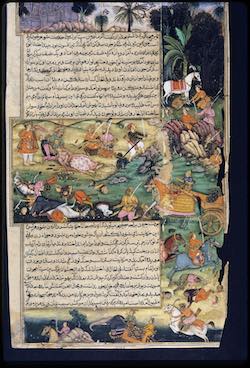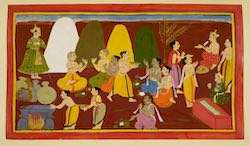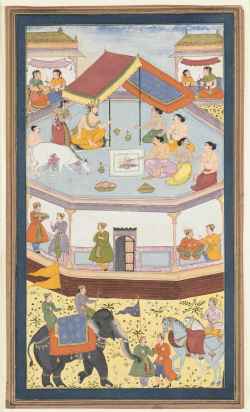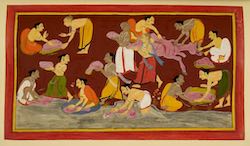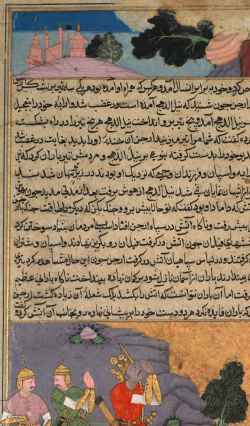Keyword: Asvamedha
Displaying results from 1 to 9 of 9
filter by:
Anshuman finds the horse and the ashes of his sixty thousand uncles. In great distress, he looks for water with which to sprinkle the ashes. His maternal uncle Garuda advises him to return with the horse in order to complete the sacrifice. He also says that the pure water of the river Ganges should be sprinkled on the ashes of his uncles in order for them to attain heaven (1712)
from: Ramayana, Bala Kanda, Ms Add. 15295, fol. 117
British Library, London [from Udaipur]
Horse sacrifice (Asvamedha) (1712)
from: Ramayana, Bala Kanda, Ms Add. 15295, fol. 33
British Library, London [from Udaipur]
King Sagara performs a sacrifice (1712)
from: Ramayana, Bala Kanda
British Library, Add. 15295, f.105
Satrughna is wounded by Kusa and Lava during Rama's horse-sacrifice (1616)
from: Leaf from a dispersed manuscript of Razmnama
Harvard University, Fine Arts Library, SS_22349926
The feast before the sacrifice (1712)
from: Ramayana, Bala Kanda, Ms Add. 15295, fol. 31
British Library, London [from Udaipur]
The sacrificed horse is prepared (1712)
from: Ramayana, Bala Kanda, Ms Add. 15295, fol. 34
British Library, London [from Udaipur]
L’Aśvamedha: Description du sacrifice solennel du cheval dans le culte védique d'aprés les textes du Yajurveda blanc (Vājasaneyisaṃhitā, Śatapathabrāhmaṇa, Kātyāyanaśrautasûtra)
Louvain - Paris: Paul Geuthner - Istas Imprimeur, 1927.
"The First Adventure of the White Horse". The king performed the horse sacrifice in order to determine the extent of his rule. For one year a horse wanders and every land through which the horse passes becomes part of the king’s territory. Arjuna following the horse encountered the son-in-law of the god of fire, Agni, who creates a river of fire to block the warriors. Arjuna pleads with Agni, the god of fire that the horse be allowed to pass, saying that the horse sacrifice is in accordance with sacred Vedic injunctions, and that at the end of the year, the horse will be sacrificed to him, the god of fire himself. (1610-1617)
from: Page from the Khan Khanan's Razm Nama (Book of Wars)
The Cleveland Museum of Art
Displaying results from 1 to 9 of 9
